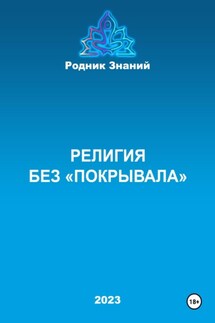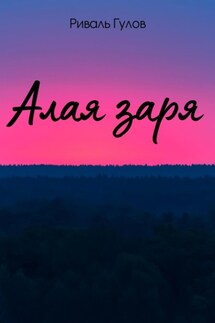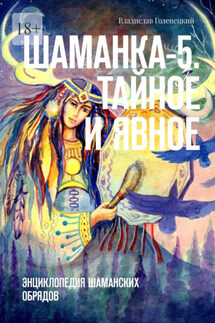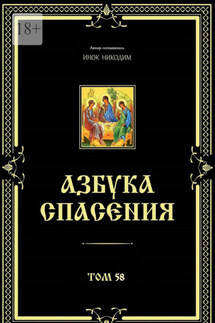Torah. The Pentateuch of Moses in weekly chapters, in poetic form - страница 4
Book: Exodus
Weekly chapter: Shmoth #13
The new Pharaoh was afraid that the Jews had multiplied greatly,
And in case of war might join Egypt’s enemies.
He ordered newborn Hebrew boys to be slaughtered with malice aforethought,
To enslave the Jewish people with exorbitant labour.
Levi’s daughter, wishing to save her son from certain death,
put him in a tarred basket and left him in the reeds.
Pharaoh’s daughter adopted the child, and he was called Moshe,
He grew and lived in Pharaoh’s palace and was honoured and profitable.
But the blood of the Jews in him, it seems, was aroused,
When he saw his fellow man beaten, he killed the Egyptian torturer,
‘And that he might not be punished by Pharaoh for his murder.
Moshe hurried to the neighbouring country of Midyan.
In Midyan Moshe married Tzipòra, the daughter of the priest of Yitro,
At Mount Sinai, G-d revealed Himself to Moshe in a flame of burning thorns.
And promises to help His Chosen People in the mountain,
Aoron is commanded by G-d to be Moshe’s interpreter.
G-d is merciful to His beloved child,
He didn’t leave Moshe in trouble despite his change of tradition.
He sent Moshe to lead the Jews out of the Egyptian hell…
Did not dissolve to make the people of Israel in a foreign environment.
From the mouth of Moses the statements of the Creator were heard by the Egyptian Pharaoh:
‘Let My son go, that He may serve Me.’
For keeping their names, the Jewish people were forgiven,
The love of liberty for their own and others’ freedom, Israel has kept it ever since.
Book: Exodus
Weekly Chapter: Va’erah #14
G-d reveals Himself to Moshe and promises him to lead the Jewish people out of Egypt,
deliver them from slavery, save them, and take them to Himself as His chosen people at Mount Sinài.
G-d declared to Pharaoh, ‘Let My people go…’, and in the absence of an answer-rescript,
He inflicted great executions on the fertile land of Egypt.
Aaron’s staff turns into a serpent, the Nile River flows blood instead of water,
Toads, lice and wild beasts invade Egyptian cities,
Pestilence, boils, hail from heaven – Pharaoh was hardened by the calamity that fell from heaven,
But the tyrant of Egypt did not let the Children of Israel go out of Egypt…
Book: Exodus
Weekly Chapter: BO #15
Locusts, darkness, and the death of the firstborn – the three final and most severe punishments of the ten,
G-d sent to Egypt to show that there is only One Lord of the world.
The transformation of a tribe of slaves into a free people could not take place,
without the opposition of monotheism to the Egyptian sacred idols.
G-d gives the Jewish people the first commandment to establish their own calendar,
The months of the new moon, in which they must henceforth.
To sacrifice a lamb for Passover and to stain their doorposts with blood,
That G-d may pass over them, before the Egyptian firstborns are punished.
The death of the firstborn breaks Pharaoh’s resistance, and he drives the Jews out,
The children of Israel are in a hurry, and do not even have time to wait for the dough to rise.
They take with them unleavened bread, the gold of the Egyptians and their own honestly earned money,
In remembrance of the Exodus and their dedication to G-d, they receive the commandment to put on tefillin.
Book: Exodus
Weekly chapter: Beshalah #16
Soon realising what valuable workers Egypt had lost,
Pharaoh chased the Jews in chariots to retrieve them by force.
Похожие книги
There have been four revolutions in Judaism since that time,The gratuitous study of the Torah, from the Oral to the Written.Accessibility for women, as a recognition of justice in feminism,But the main thing is the Torah for non-Jews and its worldwide dissemination!The TORA is the foundation of the world’s three major faiths,Judaism, Christianity, Islam.Now everyone can study the Torah – the source of sacred knowledge,However, the choice is up to
• Как подняться над собой, своими вредными привычками и мыслями? • Кто главный враг человека, где он живет и как его победить?• Что хотели донести до человека все религии?• Откуда пришли учения Мудрости, и есть ли между ними разница? • Чему учили все Учителя Мудрости, приходящие на Землю?• Антихрист идет или среди нас?• Кто есть «человек погибели»? • Кто войдет в Царство Божие и где оно находится?• Глобальный мир или Братство народов мира?• …..Эт
«Алая заря» свидетельствует о возвращении на Землю сотворённого человека. Казнь (заклание) и Пробуждение (оживление трупа) – не вымысел. Это быль. Адам Антихрист – человек, сотворённый в истине (Дух истины). И это факт.
Эта книга представляет собой собранное в алфавитном порядке описание большинства известных и тайных обрядов современных шаманов с практическими указаниями по их проведению.
Святитель Григорий Богослов: «Ум, рождая слово, выявляет желание духа». Слово – носитель духа, как Христа (Истины), так и диавола (лукавства и лжи). Мы унаследовали волю, поврежденную грехопадением праотцев и, рождаясь во плоти, стали немощны, следовательно, без Божественной помощи свыше сами себя спасти не можем. Изреченное человеком слово, несет в себе дух его, в Слове же Божием сокрыт Дух Святый, очищающий души от ветхих страстей и пороков, и
Когда изменения к лучшему затягиваются на столетие, всяко может случиться. К тому же жадность человеческая не знает границ. А если на кон поставлен самый ценный товар в истории человечества, тут уж сотней-другой жертв никак не обойдешься, кровью умоется вся страна.
Дифрэйс – город, затерянный на загадочном острове, скрывающем тёмные тайны. Здесь, среди трущоб и гниющих кварталов, переплетаются судьбы людей, элурантропов, сапердов и анолисов – существ, разделённых расовой ненавистью и борьбой за выживание.Оуэен Браун, детектив по делам убийств вымирающих рас, с детства познал боль утраты и жестокость этого мира. Его путь – это путь мрака, крови и правды, которую никто не хочет слышать. Когда в городе начинаю






